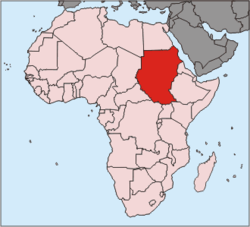By Barney Jopson and Andrew England
Sudan is seeking to attract at least $1bn of capital for its agricultural sector from Arab and Asian investment groups, which are turning to Africa in search of new food supplies as their governments try to manage the impact of commodity price inflation.
The investment ministry is marketing a portfolio of 17 large-scale projects that would cover an area of 880,000 hectares, one of its officials told the Financial Times.
Abdalla Elhag Mohamed, director of external relations at the ministry, said: “Everyone coming to Sudan is asking about agriculture, to the extent that we are struggling to cope.”
The country sees agricultural development as a vital means of reducing its dependence on oil revenues.
The greatest interest has come from governments in the Middle East, where overseas agricultural projects are being seen as tools for ensuring food security following big increases in the prices of rice and wheat, staple foods for the region.
Abu Dhabi is preparing to launch a project to develop more than 28,000 hectares of Sudanese land and Egypt has said it is considering a venture in the giant Gezira scheme, one of Sudan’s few irrigation projects. Saudi Arabia, which plans to set up large-scale agricultural projects in a number of countries, has also held talks with Khartoum.
Sudan has been described as a possible bread basket for the Middle East and has great productive potential in land close to the Blue and White Nile rivers and the River Nile proper. But the farming sector is underdeveloped and in need of capital, irrigation systems, roads, machinery and technology.
Sudan has been blighted by decades of conflict and, in spite of oil wealth that began to flow nine years ago, its ability to invest in agriculture has been limited by vast spending on the military in Darfur and other parts of the country where it faces armed opposition.
“In this difficult situation, when we are fighting, it is difficult to say, ‘Let them die and we will invest in agriculture’,” said Mr Mohamed. The government wants to secure investments totalling $1.04bn (€694m, £543m) for 17 lead projects, which are all in northern Sudan and include wheat, maize, fruit and vegetable production. But besides those, Mr Mohamed said, there were “hundreds of projects” and “millions of hectares” available.
Sudan’s previous efforts to attract agricultural investment had little success partly because they were government-to-government initiatives that hit bureaucratic and diplomatic barriers. This time it has vowed to give the private sector a much bigger role.
Mr Mohamed said “very many” investors from China, India and Malaysia were examining opportunities in the country and he added that Khartoum was also trying to drum up interest in South Africa, Brazil and Argentina. He declined to name specific institutions.
Khartoum is insisting that investors agree to terms that will yield clear benefits for Sudan.
“It’s not only to take back to their country. Local people will not accept that,” Mr Mohamed said. “It should be very clear in the agreements what proportion of food will remain in Sudan, what other social services they will provide, what new technology they will introduce, the employment they will create and the training for local people.”
Sudan’s city-dwellers have felt the effects of global inflation in the rising cost of wheat, which is an urban staple, but the country has not been hit as hard as others in Africa. “There are complaints but there’ve been no riots,” said Abdul-Rahim Hamdi, a former finance minister close to the regime.
Foreign direct investment in agriculture rose to $279m in 2007, from $188m in 2006, but it was dwarfed by FDI of $3.1bn in the industrial sector and $1.6bn in the service sector, according to the investment ministry.














